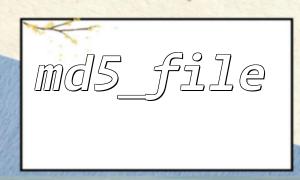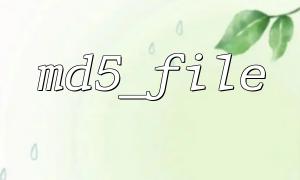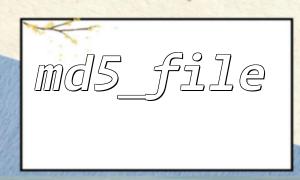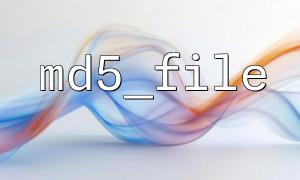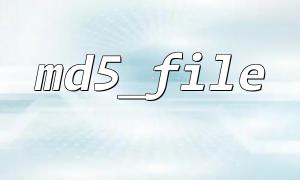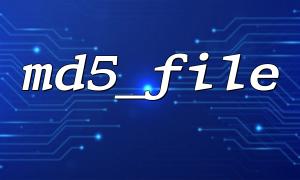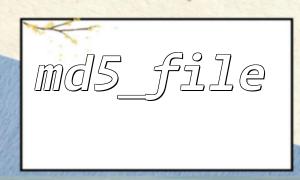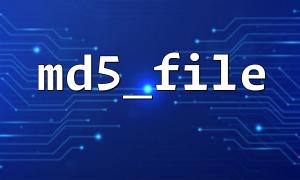When using PHP's md5_file() function, developers often overlook the impact of path selection. In fact, using relative and absolute paths can introduce subtle differences in certain scenarios, especially when it comes to caching, cross-platform deployment, and security.
md5_file() is a PHP function used to calculate the MD5 hash of a file's contents. The basic usage is as follows:
$hash = md5_file('example.txt');
This function takes a file path as an argument and returns the MD5 hash string of the file's contents.
A relative path is relative to the current script's execution directory. For example:
$hash = md5_file('uploads/image.jpg');
When executed from the command line or accessed through different entry scripts (e.g., index.php, admin.php), the current working directory may change. In such cases, relative paths can fail or point to incorrect files.
For example:
$hash = md5_file(__DIR__ . '/../uploads/image.jpg');
Although this still appears to be a "relative" path, by using __DIR__, it becomes more stable as it is based on the location of the current file.
Using absolute paths ensures the file path is always accurate. For example:
$hash = md5_file('/var/www/m66.net/uploads/image.jpg');
In complex system architectures, such as those using queues, scheduled tasks, or running PHP scripts in containers, the current working directory may be uncontrollable. Using absolute paths minimizes the risk of path errors.
Sometimes, we receive a URL from the frontend, such as:
$url = 'https://m66.net/uploads/image.jpg';
$path = parse_url($url, PHP_URL_PATH);
$hash = md5_file($_SERVER['DOCUMENT_ROOT'] . $path);
In this case, extracting the path from the URL using parse_url() and combining it with $_SERVER['DOCUMENT_ROOT'] to construct the absolute path is a more reliable approach.
When using relative paths, attackers may craft paths to trick the system into accessing sensitive files, especially when path concatenation is not carefully handled. On the other hand, absolute paths are typically confined to the server's predefined file system structure, reducing risks.
Some web servers or frameworks (e.g., Laravel) may cache file paths. Using absolute paths clearly points to the file location, reducing caching errors and the overhead of recalculating the hash.
Although md5_file() itself is independent of the path format, factors such as path stability, predictability, and security should be taken into account. It is recommended to use absolute paths consistently in production environments or construct "pseudo-absolute paths" based on __DIR__ to ensure compatibility and security.
In scenarios involving user uploads, CDN backends, or file integrity verification, combining URL analysis with absolute paths can effectively enhance system robustness:
$url = 'https://m66.net/assets/media/file.zip';
$realPath = $_SERVER['DOCUMENT_ROOT'] . parse_url($url, PHP_URL_PATH);
$hash = md5_file($realPath);
By carefully handling paths, you can not only avoid common errors but also make your PHP programs more robust and secure.

